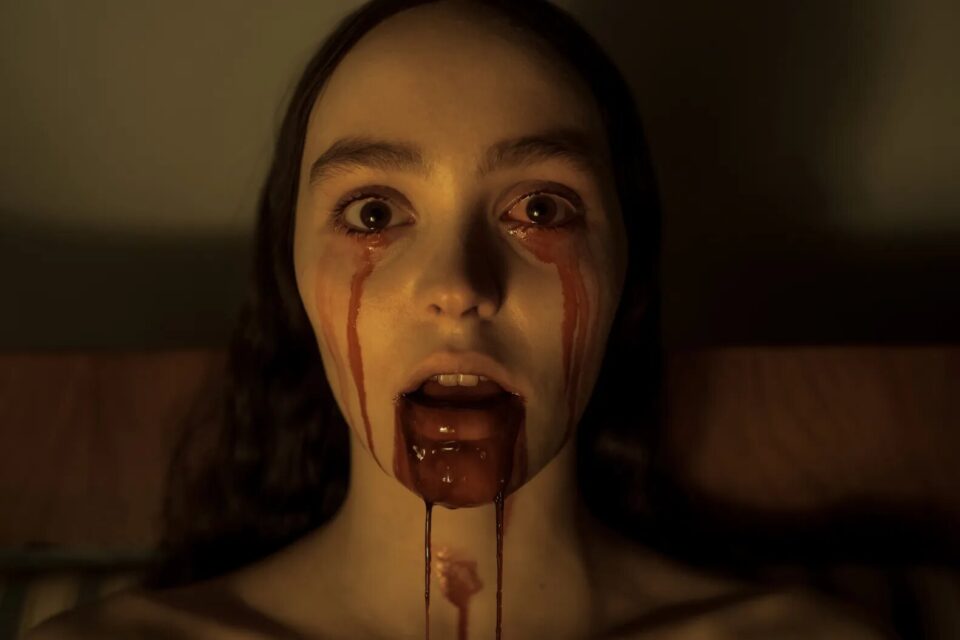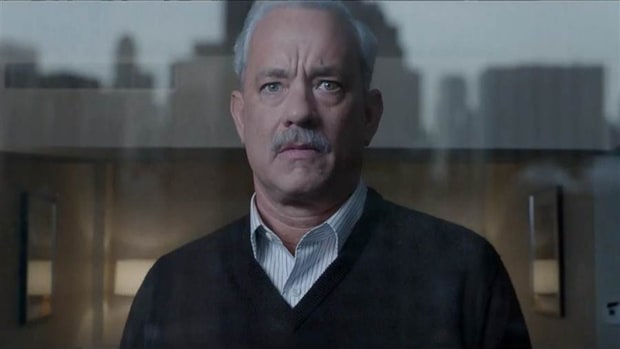‘Nosferatu’: Robert Eggers’ Remake of Horror Classic Is Anything But Bloodless
The only thing that sucks here is a vampire — otherwise, ‘The Witch’ director’s take on the landmark silent movie is stylish, scary and creepy as hell
At the midpoint between Bram Stoker turning a Transylvanian folk tale into a literary touchstone and Bela Lugosi inspiring a million I-vant-to-suck-your-blooood imitations, there was Nosferatu, F.W. Murnau’s 1922 silent “symphony of horror” about an eccentric Eastern European named Count Orlok with a taste for Type O. The fact that it was more or less an unofficial adaptation of Stoker’s novel Dracula did not sit well the author’s family, who sued the film’s producers and demanded all prints be destroyed. Spoiler alert: Not all prints were destroyed, it remains one of the most influential horror movies of all time, and anyone who thinks vampires are simply sexy, heavily accented creatures of the night should get a look at actor Max Schreck’s creepy-as-fuck appearance as the Count.
No less than Werner Herzog remade Murnau’s masterpiece in 1979, starring Klaus Kinski as the bald-headed bloodsucker; rather than pussyfoot around the whole rip-off-or-not aspect, the former doubles down and names the character Count Dracula. And now we have Robert Eggers’ Nosferatu, a film which is as faithful to its source material’s unsettling vibe as it is frightening, yet quickly distinguishes itself as its own rough beast slouching toward (or more accurately, away from) Hollywood, USA. The original holds a special place in The Witch filmmaker’s heart, and while there’s a fine line between loving a movie and being slavishly devoted to it, Eggers thankfully never crosses it. Rather, he molds the man-meets-vampire, things-go-awry story into his own rigorous type of horror filmmaking, and comes up with something stylish but not slick, feral but not overly fussy in its attempts to channel that old-fashioned folkloric feeling. You may not have asked for a new version of this near-perfect silent-film classic. You also couldn’t ask for a better artist to give this generation of Goths a nightmare to call their own.
The overall murder ballad remains the same: Germany, 1838. Real-estate agent Thomas Hutter (Nicholas Hoult) has been assigned a case by his firm involving a nobleman who lives in a castle in the Carpathian Mountains. The count would like to purchase a house in this very port town, it seems, and because the gent is too infirm to travel — “has one foot in the grave, so to speak,” intones Hutter’s superior (Simon McBurney) — Hutter must go to him. Ellen (Lily Rose-Depp), Hutter’s wife, has bad premonitions about the trip. She’s also prone to fits, which may or may not have something to do with a spirit the young woman may or may not have conjured years ago. Thankfully, her brother Friedrich (Aaron Taylor-Johnson) and his wife (Emma Corrin) will keep watch over her while her husband is gone.
Hutter meets his client, Count Orlok (Bill Skarsgard). Hutter is more than a little unnerved by Orlok’s appearance, a voice that sounds like a crypt door closing shut and the mysterious bite marks he finds on his chest the morning after he arrives. He’s soon relieved of several pints of plasma and passage for this nobleman with the claw-like hands is booked. No sooner does this boat arrive in Germany than rats scurry everywhere and instances of plague break out. Unexplained deaths become the norm. Meanwhile, Orlok has taken an interest in Ellen. Those odd voices she hears at night, forever calling to her… they do so sound like his gravelly baritone ….
The original benefited heavily from both a shadowy, Expressionistic aesthetic and Schreck’s eerily committed portrayal of “the cursed one”; a whole movie was made about his whether his undead-or-Memorex performance was indeed a performance. Eggers replicates the spirit-of-’22 vibe with a whole lot of abyss-black darkness from which figures either emerge from or proceed into, as well as a production design that emphasizes an 18th century strain of rainy dread and free-form rot. Critics of Eggers’ previous work tend to fixate on the way he fixates on period fidelity, all the better to make actors feel immersed and viewers feel they’re watching something akin to horror vérité. He’s a better time traveler than he is a filmmaker, they say, and Nosferatu will give them plenty of ammo regarding shots fired.
Yet as with Eggers’ three previous films — The Witch (2015), The Lighthouse (2019) and The Northman (2021) — such backwards-bending efforts are at the service of atmosphere above all else. And this reimagination of an age-old tale of evil winding its way across oceans has atmosphere to spare, even if you occasionally wonder what the writer-director may have to say about any of it. “Does evil come from within us, or beyond?” asks one character, and while the question is no more than posed, the malevolent, skeletal figure in beast mode, mounting and feeding on his victims like a wingless bat, makes a strong case for the latter. Skarsgard’s otherworldly — maybe “netherworldly” is more on the mark — interpretation does bring to mind Schreck’s performance, though Eggers never copycats the iconic shot of Orlok standing above a ship’s crew for one-to-one comparisons and adds a Vlad the Impaler mustache to differentiate Skarsgard’s look even further. Depp, on the other hand, is playing less a character than an acrobatic embodiment of female hysteria. Thankfully, her payoff at the end is huge. Everyone else pitches things at a level somewhere between creeped out and totally freaked-the-fuck-out. Everyone except for one actor.

If you are filmmaker and you know you have someone of Willem Dafoe’s talents and depth of imagination, you must be possibly giddy when writing lines such as “I’ve seen things in this world that would make Sir Isaac Newton crawl back into his mother’s womb,” secure in the knowledge that he will be the person saying them. Blessed with playing Professor Albin Eberhart von Franz, a.k.a. this version’s Van Helsing, Dafoe does indeed make a four-course meal of that declaration. He also knows when to underplay his cracked occult expert as everything around him is whirled into a frenzy, and it’s the way that Eggers sets him up to play both dynamics equally that reminds you why their collaborations are so fertile. It’s the third film they’ve made together, and watching Dafoe dig into this role with gusto is worth the price of admission alone. He’s not just the savior of Depp’s distressed damsel or the man who will help bring Skarsgard’s predator down for the Count. The star is the missing link between their acting styles. He’s as much a conductor as a costar.
Still, this is Eggers’ film, from first frame to last, and it’s his determination to wrap his particular, peculiar sensibility in and around a century-old classic that makes this feel like more than just Horror Movie Karaoke 101. Or at the very least, it makes this one hell of a love letter written in period-appropriate ink and with an artisanally feathered quill. You understand why this won’t convert anyone to his cause. And yet, it’s still exhilarating to see a filmmaker with his chops and passion for the perverse go all in on resurrecting this story of the undead. True, his Nosferatu could use a tad more iron. It is, however, anything but bloodless.
From Rolling Stone US.






